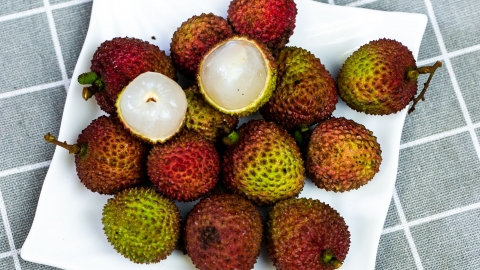Can patients with cerebral thrombosis eat lychee?
Generally speaking, patients with cerebral thrombosis can eat lychee, but should do so in moderation. Detailed analysis is as follows:

Lychee contains certain nutrients, such as sugars, vitamin C, and minerals. Moderate consumption can provide the body with energy and nutritional supplementation. Moreover, the sugar content in lychee is easily absorbed and utilized by the body, helping to quickly replenish energy, while the vitamin C and minerals it contains are also beneficial to health. For patients with cerebral thrombosis, moderate consumption of lychee is acceptable.
However, lychee has a relatively high sugar content, and excessive consumption may cause blood sugar fluctuations, especially for cerebral thrombosis patients who also have diabetes or poor blood sugar control, who should be particularly cautious. Overconsumption of lychee may also lead to heatiness, causing discomfort such as mouth ulcers and constipation. Therefore, it is recommended that patients with cerebral thrombosis consume lychee in moderation.
In daily life, it is recommended to maintain a regular routine and engage in appropriate physical exercise, which helps improve cardiovascular and cerebrovascular health.








